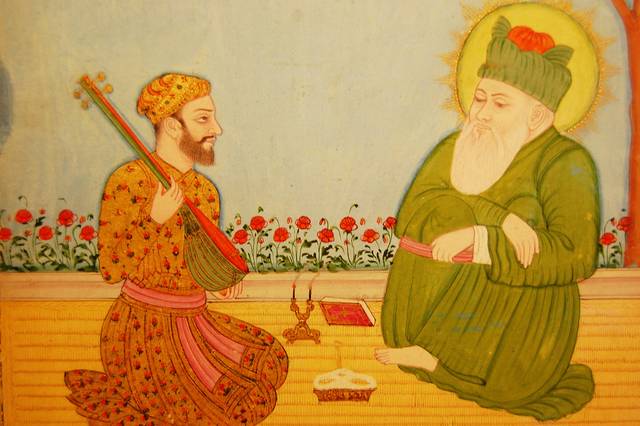
Tomorrow, 9th June, begins the 716th Urs or death anniversary of one of the giants of Indian culture, Amir Khusro (1253-1325). The Urs will last till the 13th June.
Unlike the massive crowds which come every year in the Urs, this year it will be a subdued affair, in view of the lockdown, and so I will not be going there as I annually do, and will sorely miss it.
Amīr Khusro was a versatile genius. He invented qawwali and taraana style of Hindustani music. He also invented the sitar and tabla, and developed Hindavi or Hindustani in which he wrote several immortal verses (apart from his poetry in Persian). He also composed many raagas in Hindustani music.
Amir Khusro was a disciple of the great Sufi saint Nizamuddin Auliya, and they both have their graves next to each other in Nizamuddin Dargah in Delhi. It is said that on hearing of the death of Nizamuddin Aulia, his spiritual preceptor, Amir Khusro was so overwhelmed with grief that he died a few months thereafter.
On the occasion of his Urs I am relating an incident which sends an important message in the present charged atmosphere of communalism in India.
One day in Delhi Nizamuddin Aulia was standing with Amir Khusro on the bank of the river Jumna. The saint saw Hindu worshippers bathing in the Jumna, and remarked (in Persian) :
“Har Qaum raast raahe
Din-e-wa qibla gaahe”
Which means:
“Every people has a pole (qibla) to which it turns”
i.e.: Every sect has its own right path of worship.
Amir Khusro immediately completed the couplet with a verse of his own:
“Man qibla raast kardam
bar samt kaj kulahe”
Which means:
“I, however turn my face
towards the tilted cap.”
If the people of the Indian subcontinent wish to prosper they must turn their face towards the man with the tilted cap.
Unlike the massive crowds which come every year in the Urs, this year it will be a subdued affair, in view of the lockdown, and so I will not be going there as I annually do, and will sorely miss it.
Amīr Khusro was a versatile genius. He invented qawwali and taraana style of Hindustani music. He also invented the sitar and tabla, and developed Hindavi or Hindustani in which he wrote several immortal verses (apart from his poetry in Persian). He also composed many raagas in Hindustani music.
Amir Khusro was a disciple of the great Sufi saint Nizamuddin Auliya, and they both have their graves next to each other in Nizamuddin Dargah in Delhi. It is said that on hearing of the death of Nizamuddin Aulia, his spiritual preceptor, Amir Khusro was so overwhelmed with grief that he died a few months thereafter.
On the occasion of his Urs I am relating an incident which sends an important message in the present charged atmosphere of communalism in India.
One day in Delhi Nizamuddin Aulia was standing with Amir Khusro on the bank of the river Jumna. The saint saw Hindu worshippers bathing in the Jumna, and remarked (in Persian) :
“Har Qaum raast raahe
Din-e-wa qibla gaahe”
Which means:
“Every people has a pole (qibla) to which it turns”
i.e.: Every sect has its own right path of worship.
Amir Khusro immediately completed the couplet with a verse of his own:
“Man qibla raast kardam
bar samt kaj kulahe”
Which means:
“I, however turn my face
towards the tilted cap.”
If the people of the Indian subcontinent wish to prosper they must turn their face towards the man with the tilted cap.
